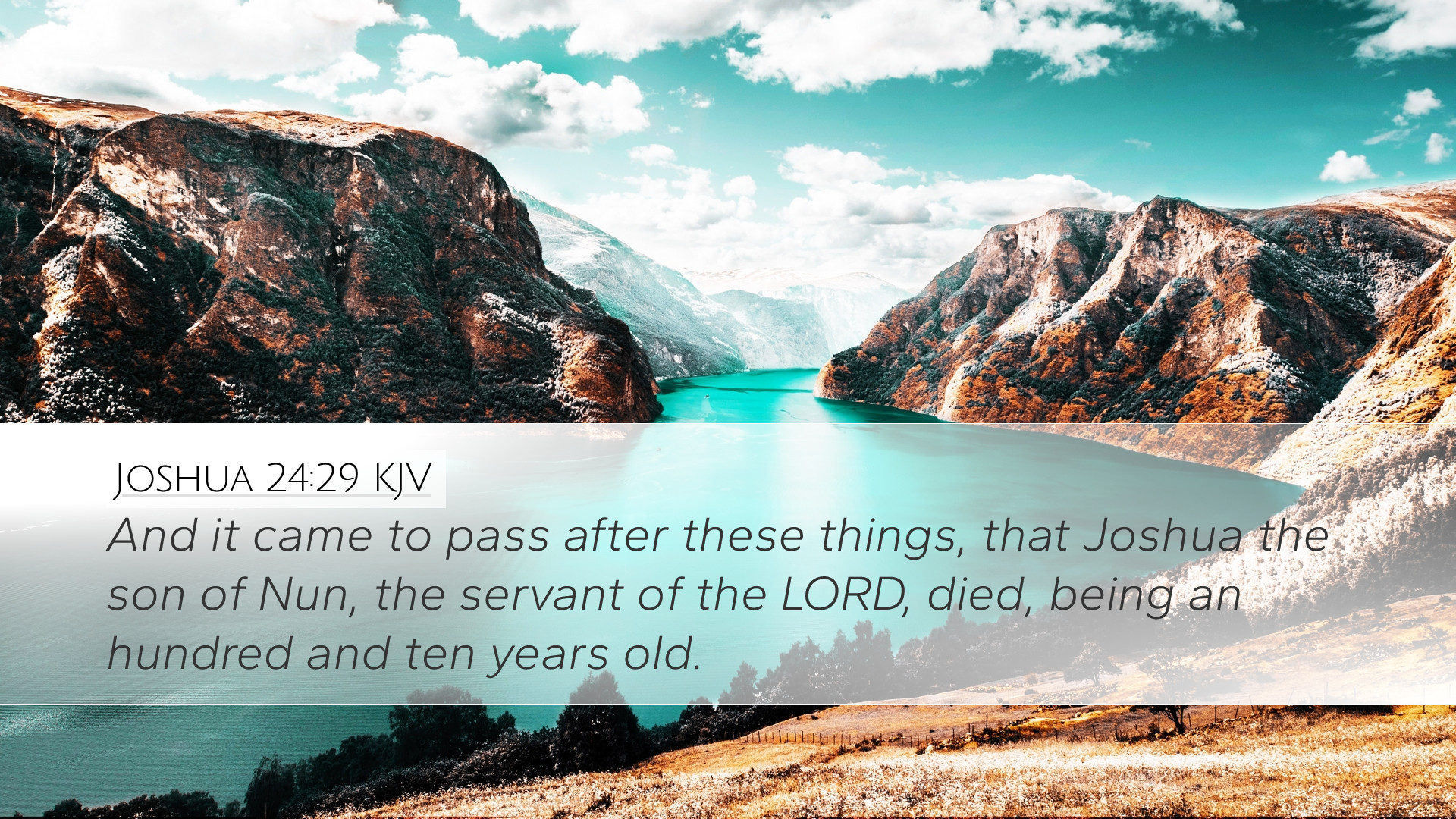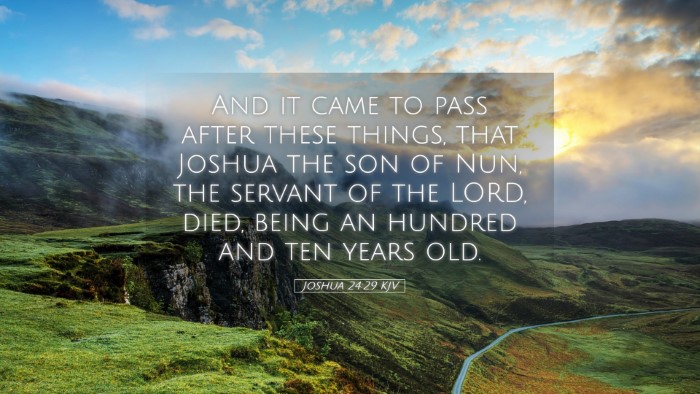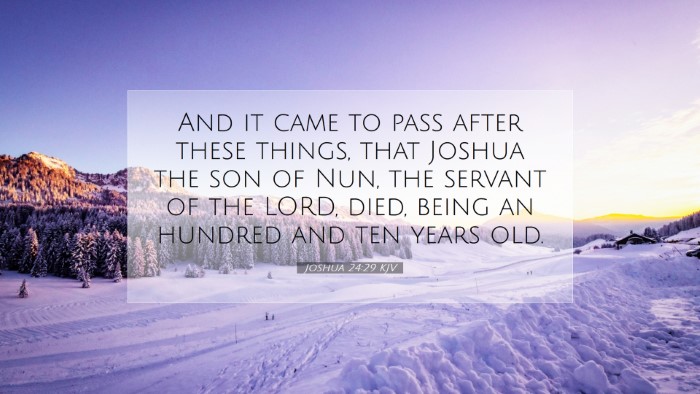Commentary on Joshua 24:29
Joshua 24:29 states:
"And it came to pass after these things, that Joshua the son of Nun, the servant of the Lord, died, being an hundred and ten years old."
Introduction
This verse serves as a poignant conclusion to the life of Joshua, one of the most significant figures in the Israelite history. His passing marks the end of an era characterized by conquest and the establishment of the Promised Land. Here, we explore insights derived from esteemed commentaries to deepen our understanding of its theological implications.
The Significance of Joshua’s Life
Matthew Henry highlights Joshua's role as "the servant of the Lord," emphasizing that his life was not merely about military victories but about faithful service to God. His legacy of obedience and leadership provides a model for future generations of believers.
Albert Barnes adds that Joshua's long lifespan of 110 years is a reflection of God's blessings upon him. The number itself carries a sense of completeness, suggesting that Joshua fulfilled his divine mandate comprehensively.
Adam Clarke further elaborates on the impact of Joshua’s leadership. He notes that Joshua's faith and courage were instrumental in the Israelites’ success and their settlement. Clarke remarks that his death symbolizes the end of guidance provided by one who was both a military leader and a spiritual shepherd.
Contextual Setting
The context of this verse is essential for understanding its depth. Following the conquest of Canaan, Joshua gathers the tribes and challenges them to remain faithful to God. His death, then, signifies not just the loss of a leader but a call to the people to uphold the covenant they had made with God.
- Matthew Henry: Highlights the farewell speech of Joshua prior to his death, where he urges the people to choose whom they will serve, indicating the ongoing need for commitment to God's ways.
- Albert Barnes: Points to the importance of leadership transition, suggesting that Joshua’s death opens the door for a new generation to either thrive or falter depending on their fidelity to God's law.
- Adam Clarke: Notes how the events surrounding Joshua's death allow for reflection on Israel’s history, emphasizing the covenant relationship and the consequences of obedience or disobedience.
Theological Implications
The conclusion of Joshua's life provides rich theological insights. His role as a "servant of the Lord" sets the stage for understanding what it means to live in covenant with God.
- Theme of Servanthood: Each commentator draws attention to the idea of servanthood in God’s plan. As a servant, Joshua exemplifies the humility and dedication required of all leaders in God’s kingdom.
- Legacy of Faith: The mention of Joshua’s age serves as a metaphor for a life well-lived in faith. It calls upon future leaders to consider the kind of legacy they wish to leave behind.
- Call to Obedience: The transition of leadership after Joshua invites future generations to reflect on their choices and faithfulness to God’s commands, underscoring the necessity for continuity in covenant faithfulness.
Lessons for Today’s Believers
As we apply Joshua 24:29 to contemporary contexts, several lessons emerge:
- Faithful Leadership: The church should recognize the importance of strong, faith-oriented leadership. Joshua's life teaches us that leaders are tasked with guiding their communities in steadfast faith.
- Purposeful Living: Reflecting upon how we live our lives with purpose. Joshua’s life calls believers to assess their commitment to the Lord and to act in ways that honor Him.
- Transition of Generations: The need for intentional mentoring as the torch of faith is passed to the next generation, ensuring that the legacy of faith continues.
Conclusion
In sum, Joshua 24:29 serves as a powerful testament to the life and impact of Joshua as both a leader and a servant of God. Through various commentaries, we glean not only historical insights but also practical applications for modern faith communities. Reflecting on Joshua’s legacy is an invitation for all believers to commit fully to the covenant, ensuring that our lives echo the faithfulness, courage, and dedication exemplified by this remarkable servant of the Lord.


